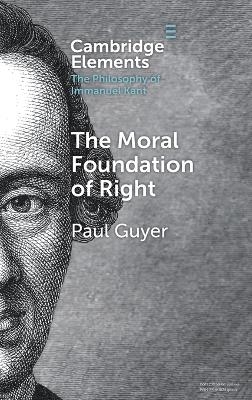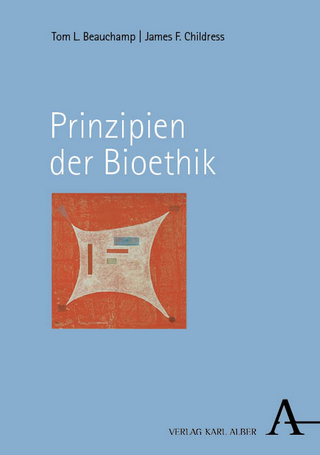
The Moral Foundation of Right
Seiten
2024
Cambridge University Press (Verlag)
978-1-009-46446-8 (ISBN)
Cambridge University Press (Verlag)
978-1-009-46446-8 (ISBN)
- Lieferbar (Termin unbekannt)
- Versandkostenfrei
- Auch auf Rechnung
- Artikel merken
In this Element Kant's 'Recht' concept refers to the freedom of individuals to set their own ends, a condition that is consistent with the freedom of all. This rational idea, akin to 'natural Right,' is considered a test for the legitimacy of state laws. Kant's 'Universal Principle of Right' aligns with the foundational idea of moral philosophy.
Kant defined 'Right' (Recht) as the condition that obtains among a population of physically embodied persons capable of setting their own ends who live on a finite surface and therefore cannot avoid interaction with each other if each is as free to set their own ends as is consistent with the freedom of all to do the same. He regarded this rational idea, heir to the traditional idea of 'natural Right, as the test of the legitimacy of the laws of any actual state, or 'positive Right.' He clearly considered Right to be part of morality as a whole, namely the coercively enforceable part, as contrasted to Ethics, which is the non-coercively enforceable part of morality. Some have questioned whether Right is part of morality, but this Element shows how Kant's "Universal Principle of Right" follows straightforwardly from the foundational idea of Kant's moral philosophy as a whole.
Kant defined 'Right' (Recht) as the condition that obtains among a population of physically embodied persons capable of setting their own ends who live on a finite surface and therefore cannot avoid interaction with each other if each is as free to set their own ends as is consistent with the freedom of all to do the same. He regarded this rational idea, heir to the traditional idea of 'natural Right, as the test of the legitimacy of the laws of any actual state, or 'positive Right.' He clearly considered Right to be part of morality as a whole, namely the coercively enforceable part, as contrasted to Ethics, which is the non-coercively enforceable part of morality. Some have questioned whether Right is part of morality, but this Element shows how Kant's "Universal Principle of Right" follows straightforwardly from the foundational idea of Kant's moral philosophy as a whole.
1. Is Kant's doctrine of right part of his moral philosophy?; 2. Kant's definitions of right; 3. Freedom, morality, and right: Kant's core argument; 4. Political morality; Abbreviations; Bibliography.
| Erscheinungsdatum | 07.01.2025 |
|---|---|
| Reihe/Serie | Elements in the Philosophy of Immanuel Kant |
| Zusatzinfo | Worked examples or Exercises |
| Verlagsort | Cambridge |
| Sprache | englisch |
| Themenwelt | Geisteswissenschaften ► Philosophie ► Ethik |
| Geisteswissenschaften ► Philosophie ► Metaphysik / Ontologie | |
| Geisteswissenschaften ► Philosophie ► Philosophie der Neuzeit | |
| ISBN-10 | 1-009-46446-9 / 1009464469 |
| ISBN-13 | 978-1-009-46446-8 / 9781009464468 |
| Zustand | Neuware |
| Informationen gemäß Produktsicherheitsverordnung (GPSR) | |
| Haben Sie eine Frage zum Produkt? |
Mehr entdecken
aus dem Bereich
aus dem Bereich


